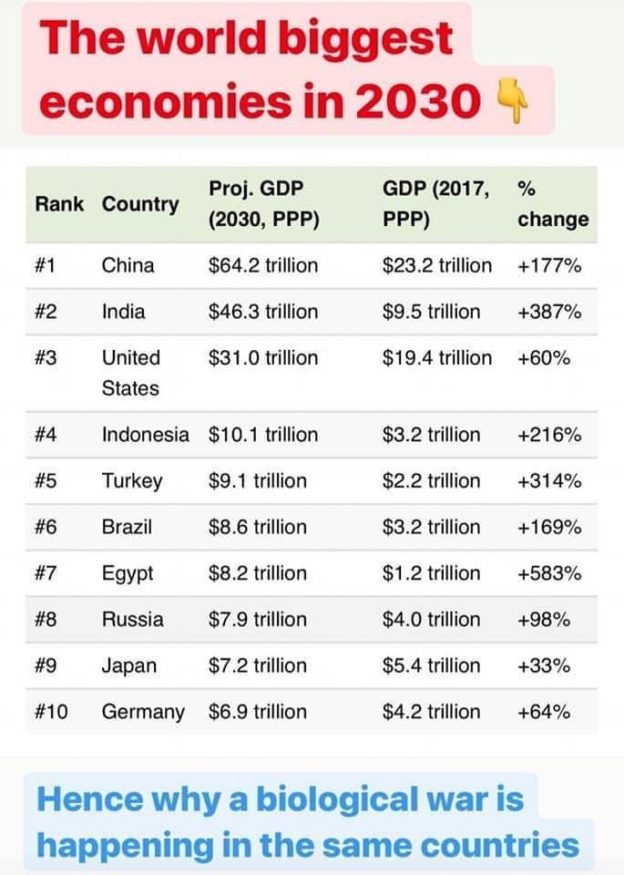According to recent projections from Standard Chartered, a multinational bank headquartered in London, the next decade will see emerging markets like India and Turkey ascending the global economic ladder to become tomorrow’s powerhouses.
Visualizing the Boom in Emerging Markets
Today’s animation is based on a previous chart of the week we created that shows how economic growth is expected to unfold in the coming years.
View the projected change in rankings for the biggest economies from 2017 to 2030 below:
If the projections used in the above video prove to be accurate, the largest economy in 2030 will be China with $64.2 trillion in GDP after adjusting for purchasing power parity (PPP).
That’s nearly $20 trillion more than India, which will be the second largest by that time.
From Good to Great
While the sheer size of the Chinese economy is certainly an exclamation point, perhaps the more interesting story here is the ascent of developing markets in general.
By 2030, it’s projected that seven of the world’s 10 biggest economies will fall into that category:
| Rank | Country | Proj. GDP (2030, PPP) | GDP (2017, PPP) | % change |
|---|---|---|---|---|
| #1 | China | $64.2 trillion | $23.2 trillion | +177% |
| #2 | India | $46.3 trillion | $9.5 trillion | +387% |
| #3 | United States | $31.0 trillion | $19.4 trillion | +60% |
| #4 | Indonesia | $10.1 trillion | $3.2 trillion | +216% |
| #5 | Turkey | $9.1 trillion | $2.2 trillion | +314% |
| #6 | Brazil | $8.6 trillion | $3.2 trillion | +169% |
| #7 | Egypt | $8.2 trillion | $1.2 trillion | +583% |
| #8 | Russia | $7.9 trillion | $4.0 trillion | +98% |
| #9 | Japan | $7.2 trillion | $5.4 trillion | +33% |
| #10 | Germany | $6.9 trillion | $4.2 trillion | +64% |
Over this timeframe, countries like Egypt, China, India, Indonesia, Turkey, and Brazil will all see their economies expand with triple-digit growth in PPP terms.
In particular, India’s economy will be buoyed by rapid population growth in its cities, which are some of the fastest-growing urban areas on the planet. At the same time, Egypt’s economy is expected to grow from $1.2 trillion to $8.2 trillion according to the bank – although we would add that this seems quite optimistic.
Finally, developed economies like the United States, Germany, and Japan will keep growing – but just not at the blistering pace of developing countries. If these projections turn out, the Japanese and German economies will round out the list with the #9 and #10 spots, respectively.
https://www.visualcapitalist.com/animation-the-biggest-economies-in-2030/





